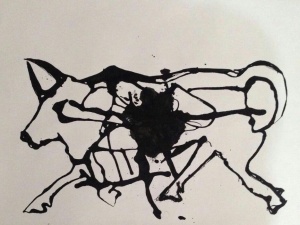Filosofía
Publicado 2023-11-01
Palabras clave
- Kuri,
- maestro,
- pensador,
- cristianismo,
- filosofía mexicana
Cómo citar
Ramón Kuri Camacho, educador. Atreverse a pensar sin hacer trampa con su ideario. (2023). FILHA, 12(16), 4-16. https://doi.org/10.60685/filha.v12i16.2233
Resumen
El presente ensayo explora algunas de las diversas facetas del magisterio y del pensamiento de Ramón Kuri Camacho, uno de los pensadores más fundamentales en la filosofía actual latinoamericana. Se busca efectuar una lectura introductoria a una obra compleja, barroca y militante en y desde el presente. A partir de una poderosa caja de herramientas intelectuales confeccionada con clásicos griegos y latinos, Kuri asume una perspectiva coherente y enfática frente al nihilismo reinante, aquí únicamente seguimos algunas pistas de su amplia trayectoria.
Descargas
Los datos de descarga todavía no están disponibles.

